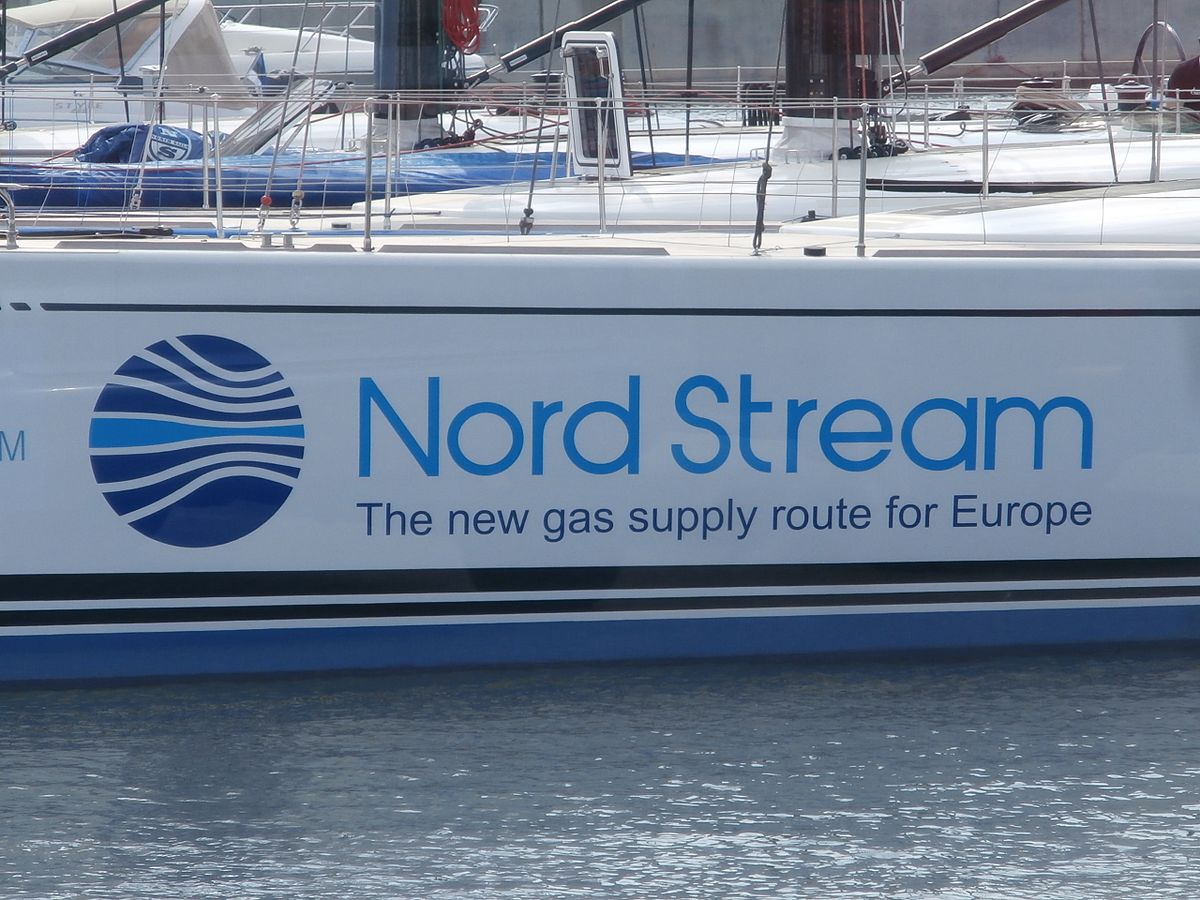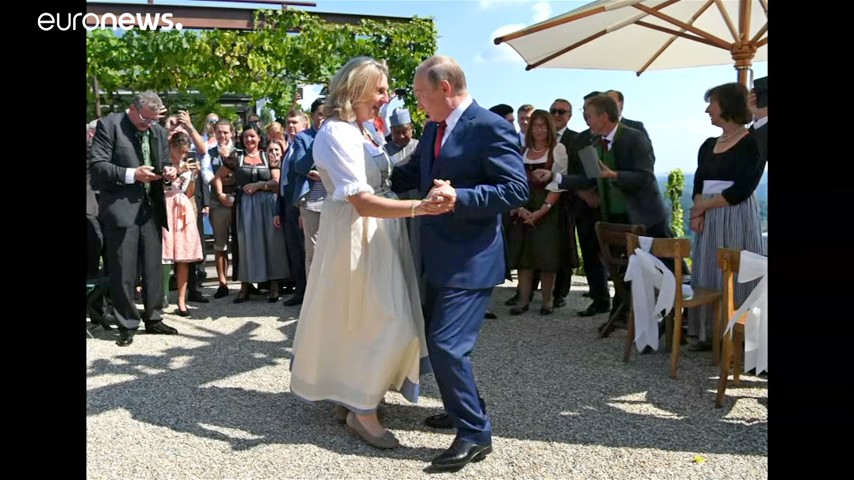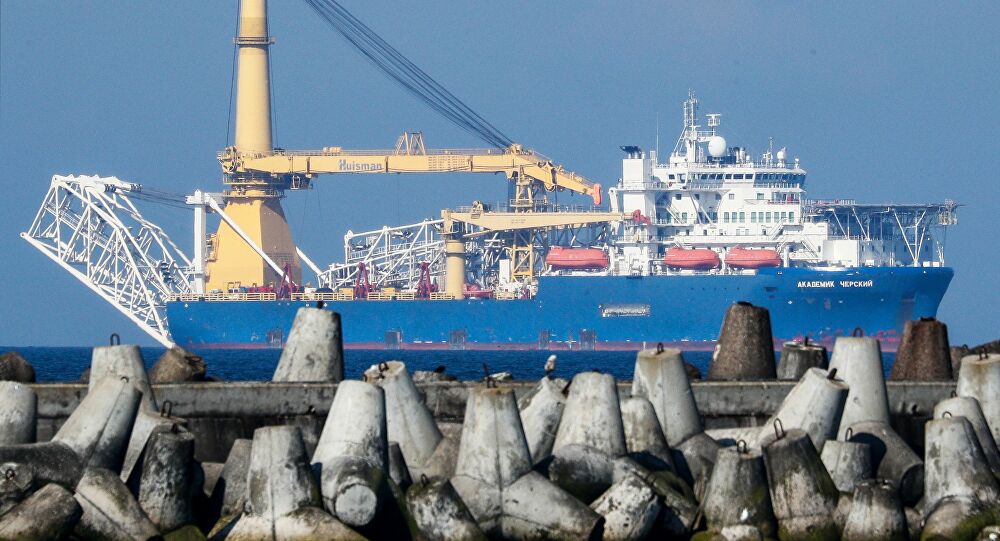What is the decision about and how will it affect NS 2?
EU rules demand that the sources of production, transportation and distribution of gas are diversified and 50% of a pipeline’s capacity must be given to other companies. This fair-competition requirement aims to ensure that companies do not prevent their competitors from accessing facilities. In practice, Nord Stream 2 AG needs to auction its capacity to third parties.
Back in May 2020, the Federal Network Agency (the German regulatory office for electricity, gas, telecommunications, post and railway markets) turned down Russia’s request made by the Nord Stream 2 consortium to give the project an exemption.
The consortium consists of five western utilities and oil companies (Uniper, Wintershall-Dea, Royal Dutch Shell, OMV and Engie) providing long-term financing for 50 % of the total cost of the project.
The consortium filed a motion for review of the May 2020 decision. As the EU energy-monopoly legislation became operative in 2019 and does not apply to pipelines already constructed, the consortium claimed the project was finished. This argument was based on the fact that the project had been completed from an economic and investment point of view as the funding of €10 bn had already been allocated for the Nord Stream 2 pipeline. “Based on the applicable legal framework at that time, the company had made investments worth billions of euros long before the European Commission announced its plan to amend [the EU energy law],” said Nord Stream 2.
But since 15 km of the 1,230 km (764 miles) of the pipeline were still to be completed, the German court rejected the claim upholding the Federal Network Agency’s ruling. As the court stated, “The pipeline was not completely built and therefore not completed in accordance with the law.” Nord Stream 2 referred to the decision in terms of a “discriminatory impact of the amended EU gas directive,” as the rules were modified after construction of the pipeline had been commenced.
The Kremlin referred to the dispute as a solely corporate issue, thus trying to separate itself from state-run Gazprom, Nord Stream’s parent company. The Kremlin spokesman Dmitry Peskov reiterated that Nord Stream 2 is a “purely commercial project…aimed at significantly strengthening European energy security.” Nord Stream 2 might appeal the ruling at the Federal Court of Justice in Karlsruhe and then at the Court of Justice of the European Union in Luxembourg.
As for the effects of the recent ruling, the pipeline project set to start operating this year will not be stopped. But the decision will cost Nord Stream 2 monetary resources and delays in time. To prevent fines, Gazprom would have to change the setup of the project to receive permission to function in compliance with the laws. This means Nord Stream 2 must obtain the status of an independent transmission system operator (a company responsible for transporting energy using fixed infrastructure) under EU rules. As a consequence, Gazprom must relinquish its control and command rights over its leadership in Nord Stream 2 and take additional steps to ensure that Nord Stream 2 is autonomous of Gazprom.
The company has filed an application for certification at the Federal Network Agency. The papers are currently under review and according to the German regulator, additional documents might be demanded to complete the application. After that the agency will draft a decision within a period of four months. As there have been cases of other pipelines legally functioning in the process of receiving certification and before its completion, Nord Stream 2 is expected to meet the same fate.
What is Ukraine’s reaction to the ruling?
Yuriy Vitrenko, Chairman of the Board at Naftogaz Ukraine, the country’s largest oil and gas company, elaborated on the court decision:
“Our strategy is to play by the same rules as the West...Gazprom lost in the Stockholm Arbitration. Now, trying to exempt Nord Stream 2 from the EU regulation, the so-called third energy package, Gazprom lost in German courts too.
And now our main battlefield will be exactly around the application of these European rules to all pipelines connecting Russia and Europe. This is not going to be an easy fight. The Kremlin is blackmailing Europe with gas shortages in winter…”
Vitrenko doubts Nord Stream 2 AG will be certified under the EU law:
“The situation is now simple: even if the German regulator turns a blind eye to the breach of EU law, we will insist that the US impose sanctions on the operator Nord Stream 2 AG fully owned by Gazprom, as that would violate the joint statement by the US and Germany. We will insist on sanctions.”
He emphasizes that “Extension of the EU law prevents the monopoly, unfair competition, and the use of gas as a geopolitical tool.”
Lena Zerkal, advisor to the Minister of Energy and former Deputy Foreign Minister of Ukraine, commented on the decision of the German court:
“No exception will be made: the door closes. Nord Stream 2 will not be exempt from the requirements of the EU gas directive.
Delivery and transportation of gas by the pipeline must be separated, namely all-too-familiar unbundling must take place. The fact that fair competition and prevention of abuse of market access are not empty words for the EU and it is ready to uphold fair and just rules of the game.”
Earlier, on 23 August the energy ministers of the United States, Germany and Ukraine met on the fringe of the Crimea Platform Summit, an inaugural high-level meeting of the diplomatic initiative for Crimea’s de-occupation.
Zerkal said that the participants at this meeting concluded that Moscow’s export pipelines must function in compliance with the EU third energy package, being “a framework that sets the rules for the operation of a gas pipeline.” She added:
“Nord Stream 2, a consortium, has applied for certification as an operator. It is not unbundled from Gazprom, that’s a violation of EU law. The first challenges are facing the German regulator, as its adherence to EU law is put to test. We expect the reaction of the EU and the European Commission in particular to follow.”
At this meeting, US Energy Secretary Jennifer Granholm said that “Russian gas is the dirtiest form of natural gas on earth, with no security on methane emissions during production and transportation, and equally due to corruption, blackmail, and manipulation.” According to Lana Zerkal, “The positions of Ukraine and the US are as close as they actually can be.”

The current Ukraine-Russia agreement on gas transit to Europe will be in force until 2024. But Putin has already threatened to cut Kyiv’s gas because of the conflict in Donbas. Not so long ago, Germany and the US signed an agreement to prevent the Kremlin from using the Nord Stream 2 pipeline as a geopolitical weapon. However, experts deem this as a mere formality with no legal effect.
Related:
- How Ukraine can still defeat Nord Stream 2
- Seven reasons why the USA and EU lost to the Nord Stream 2 lobbyists
- “A second Budapest memorandum”: experts on the US-Germany Nord Stream 2 deal
- What the US-German deal on Nord Stream 2 promises Ukraine
- US-Germany Nord Stream 2 agreement — a victory for Russia
- Strategic corruption: the new hybrid weapon against the West
- After Nord Stream-2: how Ukraine can protect its gas transit
- Mitigating the Nord Stream 2 impact on Ukraine
- Biden may lose ability to play around with Nord Stream sanctions: interview with Lana Zerkal
- Time to stop Nord Stream 2 now: open letter by Ukrainian politicians, leaders





